UnityPoint Health - St. Luke's Heart Care Clinic
Information
Number of patients waiting reflects the current number of patients waiting to be seen. This number changes frequently and is not exact.
Hours of Operation
- Monday: 8:30 AM - 4:30 PM
- Tuesday: 8:30 AM - 4:30 PM
- Wednesday: 8:30 AM - 4:30 PM
- Thursday: 8:30 AM - 4:30 PM
- Friday: 8:30 AM - 4:30 PM
- Saturday: Closed
- Sunday: Closed
St. Luke's Heart Care Clinic
As the largest and most advanced cardiology team in Cedar Rapids, St. Luke’s treats more heart patients and offers more treatment options than any other heart and vascular program in the area.
St. Luke’s cardiology team includes the area’s only structural and interventional cardiologists, who are specially trained to repair defects and disorders of the heart’s structure. It also consists of experts with advanced training in cardiac imaging, as well as electrophysiologists, who implant pacemakers, defibrillators and perform ablation procedures to correct heart rhythm problems (atrial fibrilation).
Many of St. Luke’s cardiologists have served Eastern Iowa for decades and are known for being on the cutting edge of heart care. Their dedication to researching new treatments, techniques and procedures demonstrates their commitment to patients, as they lead the way with less-invasive treatment options that reduce recovery time and improve quality of life.
Appointments & Referrals
To see a cardiology specialist call St. Luke’s Heart Care Clinic at (319) 364-7101, or contact your primary care provider for a referral. If you are a referring provider, please print and complete the applicable form and fax it to clinic using the number at the top of the form.
Cardiology Referral FormSpecialty Programs
St. Luke’s CAT Clinic cares for patients who take a variety of medications for reducing the formation of blood clots. Anticoagulants are high-risk drugs that can cause problems if not managed closely. The clinic’s goal is to prevent hospitalizations related to bleeding or clotting.
St. Luke’s CAT Clinic nurses have extensive experience in critical care and other areas of nursing. They educate patients about their medications and conditions, and assist those who need to stop taking anticoagulants for surgery or procedures.
How to Make an Appointment
If you take an anticoagulant medication, ask your provider for a referral to the CAT Clinic, located within St. Luke’s Heart Care Clinic.
Living with heart failure? St. Luke’s Heart Failure Clinic offers the tools you need to feel better. We'll teach you how to recognize the signs and symptoms of heart failure so you can monitor yourself at home.
Part of St. Luke’s Heart Care Clinic, our providers help patients with heart failure reduce unnecessary visits to the emergency room, prevent hospitalization and live a more full and productive life.
Services
Heart failure is serious and requires immediate medical attention, but it shouldn't require frequent trips to the hospital. Our goal is to keep your heart healthy enough to manage problems before they become emergencies. To do this, we:
- Provide follow-up services to continue the care, education and encouragement you received during a hospital stay as you transition home. You'll see the same nurse practitioner who cared for you in the hospital.
- Help you better understand heart failure so you can monitor the signs and symptoms at home.
- Adjust medications to decrease symptoms and improve heart function.
- Closely evaluate your physical health and other factors that may be affecting how you feel.
- Communicate with your doctor and others on your healthcare team.
- Connect you with other healthcare resources, such as social workers, home care, pharmacists, exercise experts and counselors.
- Work closely with you and your family, offering longer appointments than a normal outpatient physician visit, to ensure you have the information you need and understand it.
How to Make an Appointment
Every patient hospitalized at St. Luke’s who has received a discharge diagnosis of heart failure is seen by Heart Failure Clinic staff three to five days after leaving the hospital. In addition, a doctor or cardiologist can refer patients to the Heart Failure Clinic for evaluation. If you think the clinic can help you, ask your attending doctor at the hospital or your primary care provider for a referral to St. Luke’s Heart Care Clinic.
Designed for patients with heart murmurs or heart valve diseases, the Heart Valve Clinic is a program that provides comprehensive diagnostics and customized treatment for valvular heart disease before it becomes serious or fatal. The Heart Valve Clinic is led by cardiologists who specialize in structural heart care and involves a multidisciplinary team of advanced practice providers, radiologists, general cardiologists, interventional cardiologists and heart surgeons.
Benefits & Services
- Nationally accredited imaging labs
- Treatment options such as medical therapy and anticoagulation medications
- Valve interventions including repair or replacement
- Second opinions concerning valve diagnoses, severity, timing and type of recommended interventions
- Continued follow-up care
- Patient and family education, support and care
How to Make an Appointment
To enlist the services of the Heart Valve team, talk to your primary care provider for a referral to St. Luke’s Heart Care Clinic.
Patients experiencing the following symptoms are ideal candidates for evaluation:
- Shortness of breath with activity
- Dizziness
- Chest pain
- Cardiac murmur
- Persistent fatigue
St. Luke’s Pulmonary Hypertension Program evaluates and treats patients with pulmonary hypertension (high blood pressure in the arteries connecting the heart and lungs.) Our team of physicians and nurses have special expertise and interest in pulmonary hypertension, and offer the latest diagnostic and therapeutic testing available. The goal of this program is to improve patient prognosis and quality of life, as well as reduce their length of hospital stay and prevent future hospitalization.
Evaluation
St. Luke’s Pulmonary Hypertension Program uses all currently available diagnostic and therapeutic testing, including:
- Invasive hemodynamic assessment with vasodilator testing (to measure the heart’s blood volume, pressure and efficiency, as well as evaluate the lung’s blood vessels)
- Exercise hemodynamic assessments
- Cardiopulmonary exercise testing
- Echocardiography
- Magnetic resonance imaging (MRI)
- Computerized tomography (CT) scan
How to Make an Appointment
To be evaluated for pulmonary hypertension, talk to your primary care provider about a referral to St. Luke’s Heart Care Clinic.
St. Luke’s Varicose Vein Clinic offers non-surgical treatment to reduce discomfort and appearance of varicose veins. Procedures are done within St. Luke’s Heart Care Clinic and don’t require anesthesia, hospitalization or surgery. Patients are able to be back on their feet resuming normal activities the same or next day.
Treatment Options
- Sclerotherapy: During sclerotherapy, the cardiologist injects a chemical into your varicose vein. The chemical irritates and scars the vein from the inside out so your abnormal vein can no longer fill with blood. Circulation is carried out through your healthy veins located deeper within the body, so the outward appearance and sometimes pain associated with the varicose veins is significantly reduced. Your body will eventually absorb the vein that received the injection. Small to medium-size varicose veins respond best to this procedure.
- Endovenous laser ablation treats larger-size varicose veins using a tiny fiber inserted into a varicose vein through a catheter. A laser light is emitted through the fiber, and as it is pulled back through the vein, it delivers just the right amount of light, causing the vein react and seal shut. Veins that are closed are superficial veins that handle less than five percent of the body's blood flow. The blood is automatically routed to other, healthier veins.
- Phlebectomy had initially been the only effective method for treating varicose veins. It is a minimally invasive procedure done under local anesthesia, which removes bulging veins from just below the surface of the skin. Removal does not impact circulation because deeper veins within the leg will continue to supply the proper amount of blood flow.
Benefits
- Results can be immediate and have a high success rate
- Patients often experience significant relief from aches, heaviness and pain
- Treatment allows for more efficient blood circulation
- Patients report improved self-image and confidence in appearance
- Treatments are minimally invasive, quick and easy
- You can return to your daily activities immediately
How to Make an Appointment
To be evaluated for varicose vein treatment, ask your primary care provider for a referral, or contact St. Luke's Heart Care Clinic.
St. Luke’s Heart Care Clinic Locations
Patient accessibility is a priority for St. Luke’s heart care team. A larger practice with more cardiology providers means patients have better access to a heart specialist. Additionally, St. Luke's cardiologists and trained staff travel to multiple communities – more than any other hospital in the area – to bring heart care consultation and cardiac diagnostic services to you, so there's no need to travel.
When you need a heart doctor, turn to the largest and most specialized team of cardiologists in the area, St. Luke's – Cedar Rapids' Heart Hospital.
Call St. Luke’s main Heart Care Clinic in Cedar Rapids at (319) 364-7101 to connect with a heart care provider today, or search for a provider, below.
Directions to St. Luke's Heart Care Clinics
Cedar Rapids – PCI Medical Pavilion
202 10th St. SE, Suite 225, Cedar Rapids, IA 52403
Get DirectionsOur Providers

Boothapuri Venkatesh, FACC, MD
Cardiology

Fahed H Al Darazi, MD
Cardiology

Carla Huber, ARNP
Cardiology
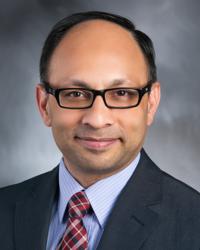
Talha Farid, MD, Msc
Electrophysiology, Nuclear Cardiology, Cardiology
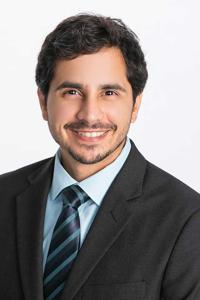
Ankur Vyas, MD, MS
Interventional Cardiology, Cardiology

Heather MacTaggart, ARNP
Electrophysiology, Cardiology

Weiwei Li, MD, Phd
Electrophysiology, Cardiology

Diane M Hoover, ARNP
Cardiology
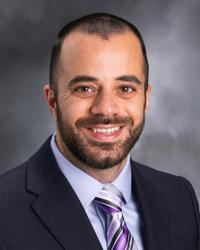
Andreas Kyvernitakis, MD
Preventive Cardiology, Cardio-Oncology, Computed Tomography, Nuclear Cardiology, Cardiology

Michele Tangeman, ARNP, DNP
Heart Failure, Cardiology
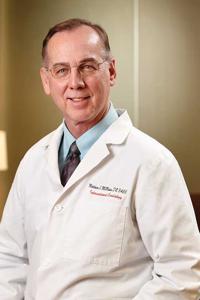
Matthew J McMahon, DO, FACC
Heart Failure, Cardiology

Kiley Schroeder, ARNP, MSN
Cardiology

Julia Privett, PA-C
Cardiology
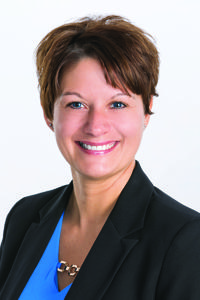
Tiffany Ehlers, ARNP, MSN
Cardiology

Laila A Payvandi, MD
Cardiology

Amy Vincent, ARNP, MSN
Electrophysiology, Cardiology
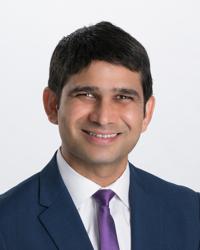
Arpit Sothwal, FACC, MD
Cardiac Imaging, Nuclear Cardiology, Cardiology

Nidhi Madan, FSCAI, MD, MPH
Structural Heart Disease Cardiology, Interventional Cardiology, Cardiology
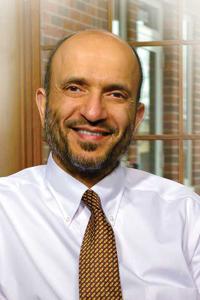
Hisham M Wagdy, FACC, MD
Nuclear Cardiology, Cardiology

Keith J Kopec, MD
Cardiology
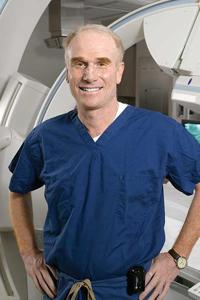
Subhi A Halawa, MD
Nuclear Cardiology, Interventional Cardiology, Cardiology
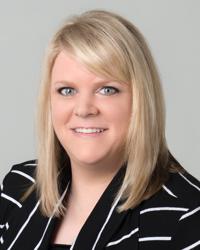
Katie Maybanks, ACNP
Structural Heart Disease Cardiology, Cardiology
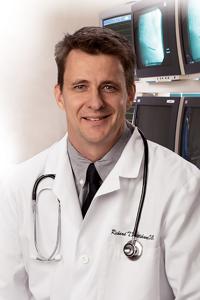
Richard T Kettelkamp, DO
Interventional Cardiology, Structural Heart Disease Cardiology, Cardiology
